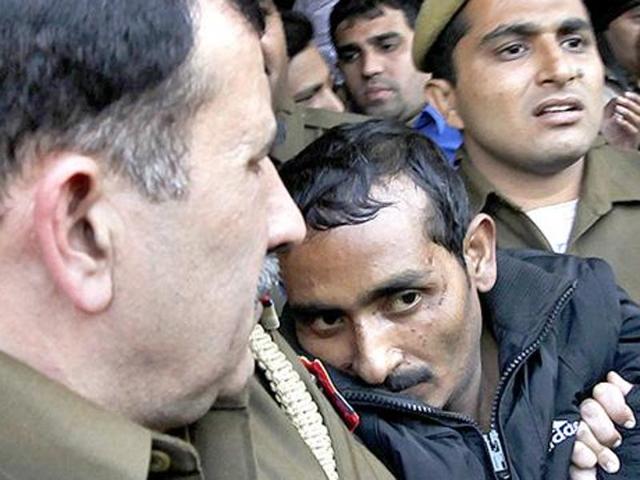
Delhi court finds Uber cabbie guilty of kidnapping, assault and rape
A Delhi court on Tuesday convicted a former driver of app-based cab hailing service Uber for raping a 25-year-old passenger last December and said it would hear arguments on the quantum of sentence later this week.
A Delhi court on Tuesday found a former Uber driver guilty of raping a 25-year-old financial analyst last year, a case that had led to a ban on the online taxi-hailing service in the Capital.
Additional sessions judge Kaveri Baweja also found 32-year-old Shiv Kumar Yadav guilty of kidnapping, assault and criminal intimidation.
The quantum of punishment in the case that triggered widespread protests and raised questions over the safety of app-based taxi services will be announced after a hearing on Friday. The maximum punishment for rape in India is life imprisonment.
“Held guilty of all charges,” Baweja said in a courtroom packed with mediapersons and Yadav’s wife and other family members.
The woman was raped by Yadav on December 5 when she was returning to her east Delhi home from Vasant Kunj in a cab she had booked through Uber.
The woman had also sued the California-based taxi aggregator in the US for unspecified damages but later withdrew the suit.
During investigation it was found that Yadav, who hails from Mathura in Uttar Pradesh, had several cases of sexual assault against him.
The cases could go against him during the sentencing, said Shilpi Jain who has represented several rape victims. “The fact that his antecedents are not clean will definitely be a consideration…. the fact there are criminal cases pending against him show he is a habitual criminal,” said Jain, who also the lawyer for a German tourist in the 2006 Alwar rape case the trial in which concluded within 15 days.
India recorded 36,735 rape cases in 2014, of which 2,096 were reported in Delhi alone. Experts say the numbers could be much higher as many incidents of sexual violence remain unreported.
As soon as the verdict was pronounced, Yadav, who was ticked off by the Supreme Court in September for adopting delaying tactics, was escorted out by three policemen as his wife ran along. “Sab kuch paper par aa jayega (you can read about it in papers),” he was heard telling her. Yadav, said sources, had been threatening to kill himself if found guilty.
“I’m very happy for this just verdict. It needed to be done swiftly, and it was,” public prosecutor Atul Srivastava said.
Yadav’s lawyer DK Misra had accused the police of acting under pressure from the government and conducting a hurried probe. DNA evidence and GPS records of the taxi, however, sealed Yadav’s fate.
The Delhi government had banned Uber after the incident, saying it had failed to run background checks on drivers and had violated rules.
Later, Uber and rival Ola applied for licences to run radio-taxi services but the applications were rejected. The rivals, however, have returned to Delhi streets after the high court recently gave them time till March 1 to take their fleets off diesel. The Centre, too, has issued guidelines ending confusion surrounding app-based taxi services.
Uber’s rapid international growth has sparked tensions in several countries, with rivals protesting that its cars are not subject to the same regulations. In some countries, drivers have faced cases of assault and sexual violence.
“Sexual assault is a terrible crime and we’re pleased he has now been brought to justice,” Uber India president Amit Jain said in a statement.
